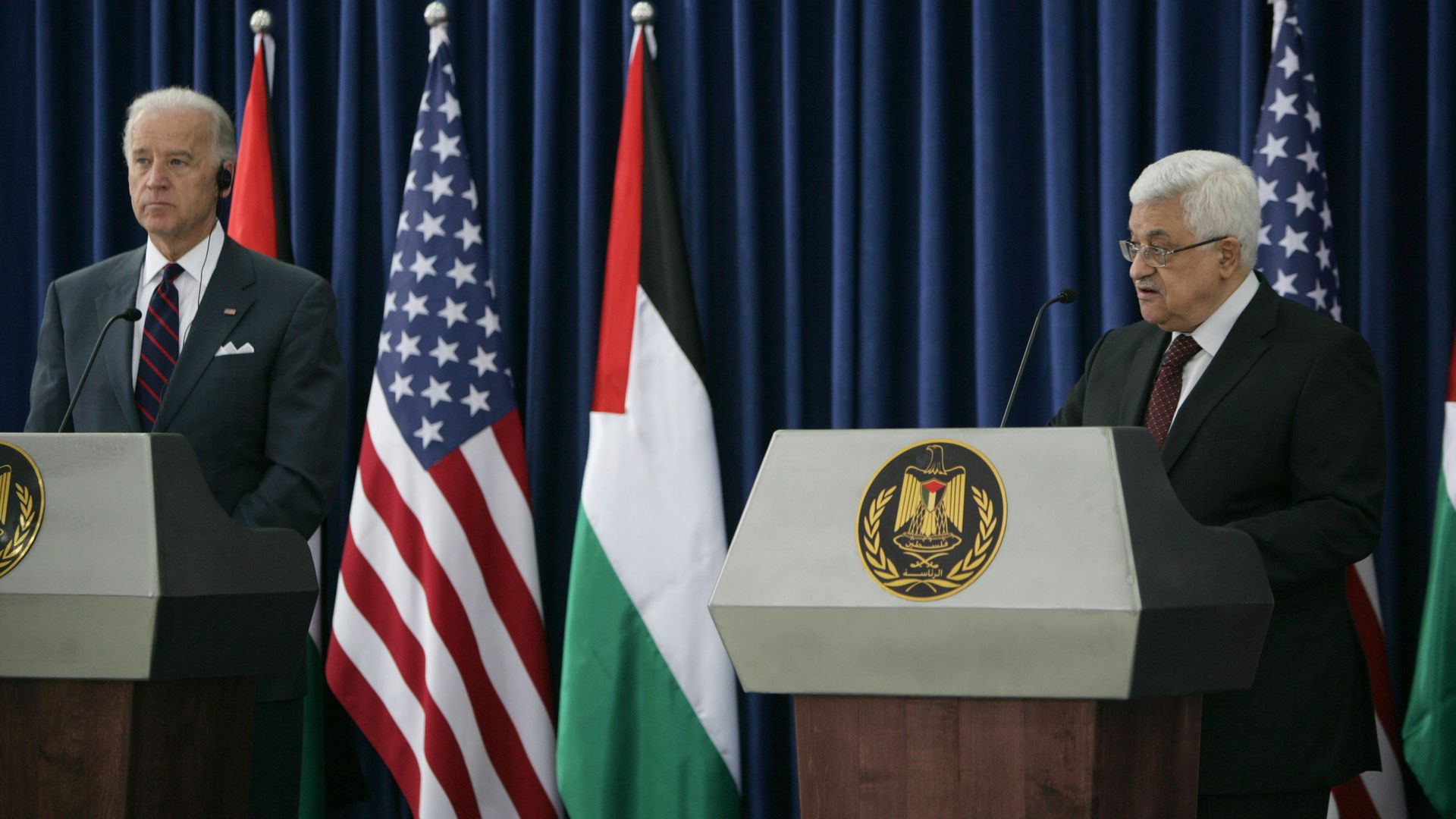Palestinians to resume coordination with Israel following Biden's win
Add Axios as your preferred source to
see more of our stories on Google.

Biden with Abbas in 2010. Photo: Thaer Ganaim/PPO via Getty Images
The Palestinian Authority announced today it will renew security and civilian coordination with Israel after a six month standoff triggered by Israeli Prime Minister Benjamin Netanyahu's vow to annex parts of the West Bank.
Why it matters: The Palestinian decision is a goodwill sign following Joe Biden's election victory, and it's also an economic imperative because of the deep financial crisis in the West Bank.
- Palestinian Prime Minister Mohammad Shtayyeh said the decision was made after the Palestinians received a letter from Israel that included a commitment to uphold all agreements between the parties.
- Shtayyeh added that a European country had mediated between the Palestinians and Israelis to get the coordination back on track. Israeli officials say it was Norway.
Flashback: Outraged by Netanyahu's pledge that his new government would take up annexation, Palestinian President Mahmoud Abbas announced in May that he considered all agreements with Israel and the U.S. to be void. He said he'd sever security and civilian coordination with Israel until it reversed its annexation plans.
- As part of that new position, the Palestinian Authority stopped accepting tax revenues amounting to $15o million per month that are collected on its behalf by Israel.
The big picture: The resulting revenue shortfall, combined with the pandemic, contributed to a financial crisis in the West Bank. The Palestinian Authority has struggled to pay the salaries of officials and members of the security forces, and it's been taking loans from private banks.
- Abbas declined to reverse the decision even after Israel backtracked on annexation as part of its normalization deal with the UAE.
- When the Palestinians asked the European Union and some of its member states for loans, EU officials said they'd refuse to provide any additional financial aid as long as the Palestinians were refusing to accept the tax revenues collected by Israel.
What to watch: Israeli officials say they will meet with their Palestinian counterparts as soon as possible to make sure all contacts are back to normal. They said the first step will be to transfer to the Palestinians around $900 million of their tax revenues
Go deeper: Mixed reactions to Biden's victory across the Middle East
